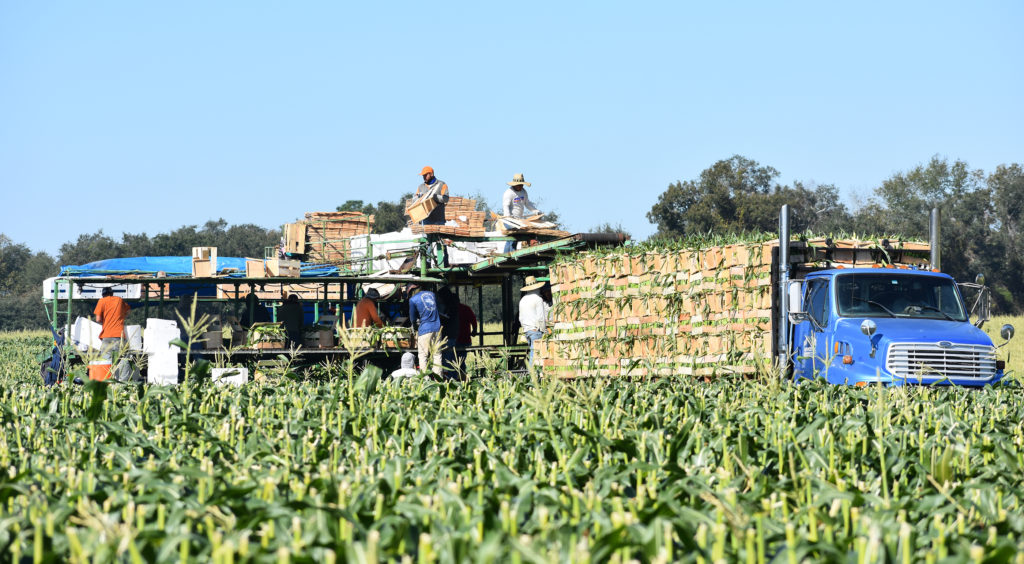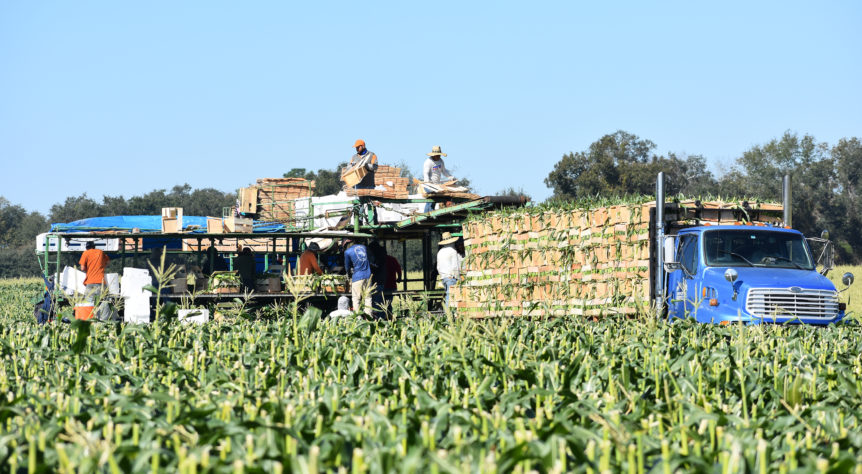
By Clint Thompson
Immigration reform would go a long way in helping specialty crop producers secure an adequate and reliable workforce for the future. But too many sides with too many opinions have kept this important step from becoming a reality.

Bob Redding, who works for the Redding Firm and serves as a lobbyist for agricultural groups in Washington, D.C., discussed immigration reform during the Georgia Ag Labor Relations Forum in Tifton in November. Regional differences top the list of issues that prevent significant reform pertaining to ag labor.
“One of the industry problems is too many groups are leading on this effort. Honestly, this has become an issue in almost every single congressional cycle with the west, California, versus the Southeast, on policy,” Redding said. “The two have not merged, as far as policy to make it happen. It’s been going on at least since I’ve been in Washington. This is an area, where I mentioned at the H-2A forum, we’ve got to get these groups together if we’re ever going to move beyond where we are today.
“Honestly, you go to meetings and have a member say, ‘I’m all in for it. I think this is a good compromise, a good plan.’ Yet, they’ll name one of the many, many groups that have the H-2A reform hat on and say, ‘This group is not happy with it.’ It’s very frustrating. We have groups where people are in the organization and then they go out and form a new group to work on.”
H-2A
Labor reform is essential for farmers since the bulk of producers’ workforce is foreign based through the H-2A program. The H-2A program allows U.S. employers or U.S. agents who meet specific regulatory requirements to bring foreign nationals to the United States to fill temporary agricultural jobs. Florida, California and Georgia remain the top users of the H-2A program. But critics have noted its expensive and convuluted for the average grower to abide by.
But to make necessary modifications, it requires true immigration reform, a concept that’s been debated for decades, says Redding.
“We have members on both sides of the aisle, republicans and democrats, recognizing that H-2A is too complicated, too complex, bureaucratic and too expensive. How would a small grower, they’re not going to have a lawyer on staff. They’re not going to have a labor specialist or H-2A specialist on staff. It’s expensive to hire these people. How would they ever afford it?” Redding noted. “In addition, every time you try to address pieces of this, like this last bout we had with the increased wage rate, it just becomes entangled with the whole border/omnibus immigration reform.”










